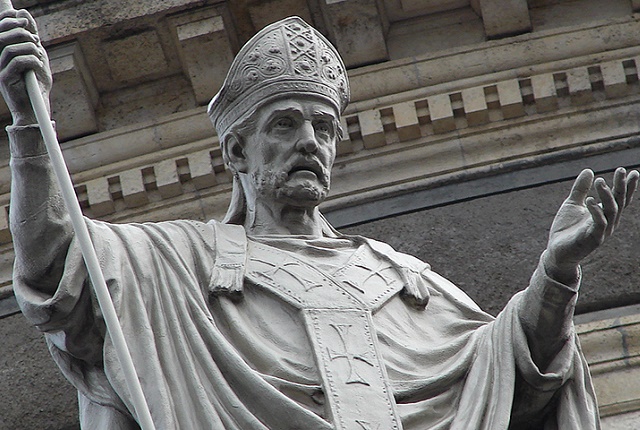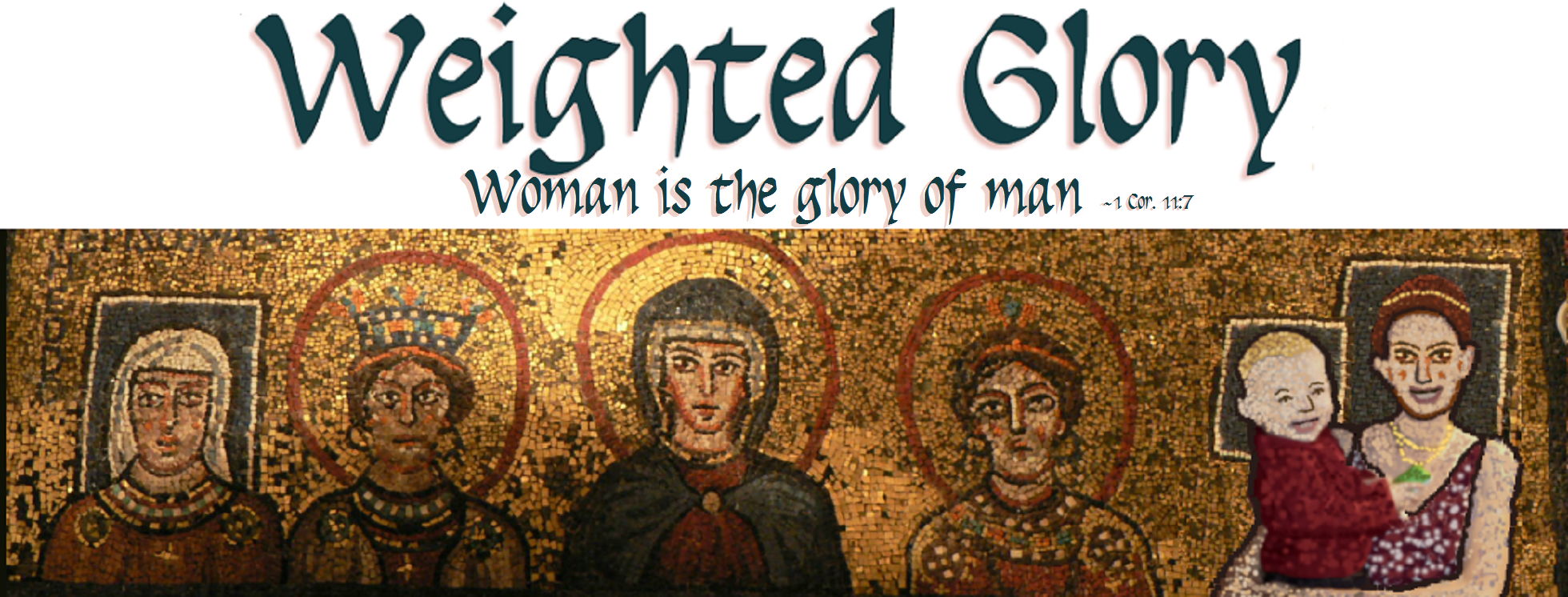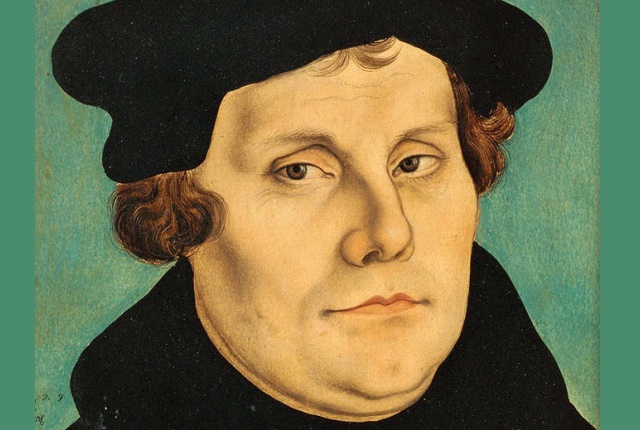
by Bridget Jack Jeffries, PhD Student (Church History), Trinity Evangelical Divinity School
If you’ve ever read a serious article on the apostle Junia, you’ve read the following quote from John Chrysostom of Constantinople (c. AD 349 – 407), which says:
“’Greet Andronicus and Junia . . . distinguished among the apostles.’ To be apostles is a great thing, but to be distinguished among them—consider what an extraordinary accolade that is! They were distinguished because of their works and because of their upright deeds. Indeed, how great was the wisdom of this woman that she was thought worthy of being called an apostle!” [1]
Chrysostom’s witness to Junia is a powerful one for a number of reasons:
He undeniably affirms that Junia was a woman. With most commentators, we only know that they had a woman in view because they used the feminine form of Junia (or sometimes, the equally-feminine variant Julia). Chrysostom is alone among early patristic commentators in commenting specifically on the fact that Junia was a woman.
He undeniably reads the passage inclusively. Contra Burer and Wallace [2], Chrysostom offers no hint that the passage can be read any other way. This is significant because John Chrysostom was no advocate of women’s ordination [3]; like most early church fathers, he had negative things to say about women elsewhere [4]. If he thought the passage could be taken in a way that would render Junia a non-apostle, he likely would have taken it that way (or at least commented on the alternative). Instead, the Greek syntax compelled this man to read Scripture as proclaiming a woman to be an apostle, because—when the Greek text isn’t being tampered with by English translators—that is what God’s Word plainly says.
Chrysostom is a Greek father who spoke Greek fluently and was closer to Paul’s language than any of us are or ever will be. Hierarchists (complementarians / Christian male headship advocates) have tried minimizing the significance of the Latin witnesses to Junia, mostly on account of their abundance. They’ve tried insisting that the only witnesses that really matter are the Greek ones, namely, Origen, Epiphanius, and Chrysostom [5], incorrectly believing that the first two affirm a male Junias, which makes the score 2-to-1 (they always seem to neglect Theodoret of Cyrus, for some reason). In actuality, Origen, Chrysostom, and Theodoret are all in harmony with the Latin patristic and early medieval witnesses on Junia, and Epiphanius left no extant commentary on Junia.
Conclusion
John Chrysostom affirmed that the Bible teaches a female apostle named Junia, joining Origen among the earliest and most significant of the patristic witnesses on the matter.
—
The Junia Series – Introduction
II. The Patristic Commentators
- Origen on the Apostle Junia
- Did Origen say Junia was a man?
- John Chrysostom on the Apostle Junia
- Rufinus and Jerome on the Apostle Junia
- Ambrosiaster and Theodoret on the Apostle Junia
III. Later Commentators
- Index Discipulorum: A Troubled Witness
IV. Junia: An Apostle Herself, or Just Well-Regarded By Them?
- An Overview of the Burer-Wallace Contention
- Junia and the Island of Tyre
More will be added to the index as the series develops . . .
—
[1] In epistulam ad Romanos 31.2; PG:60.669-70, translation mine.
[2] Daniel B. Wallace and Michael H. Burer, “Was Junia Really an Apostle?: A Reexamination of Rom 16.7,” New Testament Studies 47 (2001): 76-91; Burer, “ἐπίσημοι ἐν τοῖς ἀποστόλοις in Rom 16:7 as ‘Well Known to the Apostles’: Further Defense and New Evidence,” Journal of the Evangelical Theological Society 58.4 (2015): 731-55.
[3] “[W]hen one is required to preside over the Church, and to be entrusted with the care of so many souls, the whole female sex must retire before the magnitude of the task, and the majority of men also” (On the Priesthood 2.2). Also, “The divine law indeed has excluded women from the ministry, but they endeavor to thrust themselves into it” (On the Priesthood 3.9). That said, in regards to Euodia and Syntyche of Philippians 4, Chrysostom wrote: “It seems to me that these women were the head (κεφάλαιον) of the church which was at Philippi” (Homilies on Philippians 13, translation mine). Whatever his feelings for women in leadership in his day, Chrysostom was seemingly unable to deny what Scripture said about Junia, Euodia, and Syntyche.
[4] For example, “[T]he [female] sex is weak and fickle” (Homily 9 on First Timothy), or his teaching that women do not bear the image of God (something that he connects to holding authority — In Genesim 2 [PG 54.589]). Also, from his Quales ducendae sint uxores (“The Kind of Women Who Ought to Be Taken as Wives,” PG 51.230), “God maintained the order of each sex by dividing the business of life into two parts, and assigned the more necessary and beneficial aspects to the man and the less important, inferior matter to the woman.” Translated by Elizabeth Ann Clark, Women in the Early Church: Message of the Fathers of the Church (Collegeville, Minn.: Liturgical Press, 1983), 37. A caution: there are a number of “John Chrysostom misogyny” quotes on the Internet that are either fake, amalgamations, or taken badly out-of-context. Don’t believe everything that you read about Chrysostom (!).
[5] For an example of this, see the article on Junia at the Council on Unbiblical Manhood and Womanhood, discussed in my previous post in this series.



